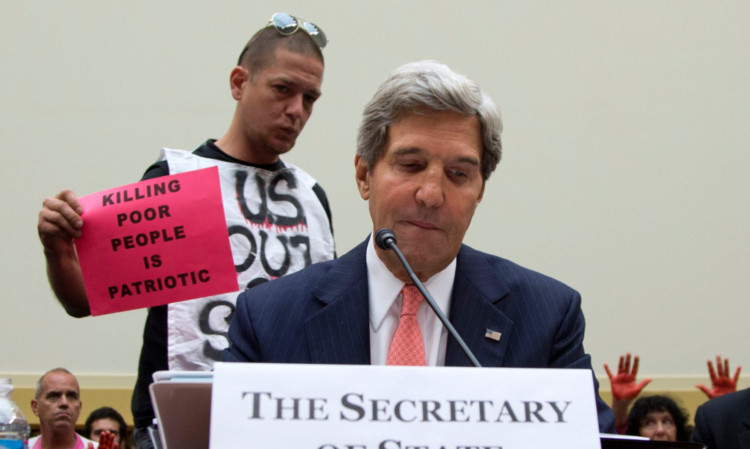A US Senate panel has voted to give President Barack Obama the authority to use military force against Syria in response to a deadly chemical weapons attack.
The vote in the Senate foreign relations committee was the first in a series as the president’s request makes its way through congressional panels before coming before the two chambers of Congress for a final vote. The full Senate is expected to vote on the measure next week.
The resolution would permit Mr Obama to order a limited military mission against Syria, as long as it does not exceed 90 days and involves no American troops on the ground for combat operations.
Mr Obama, who was visiting Sweden before he attends a G20 economic summit with Russia later this week, said the international community’s credibility is at stake in the debate over a military response to the use of chemical weapons in Syria.
Asked about his past comments drawing a “red line” against the use of chemical weapons, Mr Obama said that line had already been drawn by a chemical weapons treaty ratified by countries around the world.
The Senate committee’s vote had been delayed after Republican Senator John McCain, an outspoken advocate of intervention against the Assad regime, said he does not support the resolution.
He said he wants more than cruise missile strikes and other limited action, seeking a stronger response aimed at “reversing the momentum on the battlefield” and hastening Assad’s departure.
The Obama administration also needs to persuade a Republican-dominated House of Representatives that has opposed almost everything on Mr Obama’s agenda since the party seized the majority more than three years ago.
Secretary of State John Kerry, Defence Secretary Chuck Hagel and the chairman of the Joint Chiefs of Staff, General Martin Dempsey, made their case in a public hearing before the House Foreign Affairs Committee.
Mr Kerry said: “The world is wondering whether the United States of America is going to consent with silence,” he said.
Anti-war demonstrators seated behind him silently raised their red-coloured hands. The president is expected to find little support for action on his overseas trip.
Among major allies, only France has offered publicly to join the US in a strike. UN Secretary-General Ban Ki-moon has warned that any “punitive” strike on Syria would be illegal without a sound case for self-defence or the approval of the Security Council, where Syria ally Russia has used its veto power to block action against Assad’s regime.
Russian President Vladimir Putin has warned the West against taking one-sided action in Syria but said Russia “doesn’t exclude” supporting a UN resolution on punitive military strikes if it is proved that Syria used poison gas on its own people.
Prime Minister David Cameron suggested the people of Syria risk Armageddon if the international community fails to respond to the use of chemical weapons by the regime of President Bashar Assad.
He told the House of Commons it would be perilous for the world to step back from Barack Obama’s warning that chemical weapons use was a red line issue.
Downing Street denied Mr Cameron was seeking to send a message to the US president to press ahead with military strikes against the Assad regime.
His warning came as Mr Obama said the credibility of the international community was on the line unless it enforces the provisions of the Chemical Weapons Convention.
